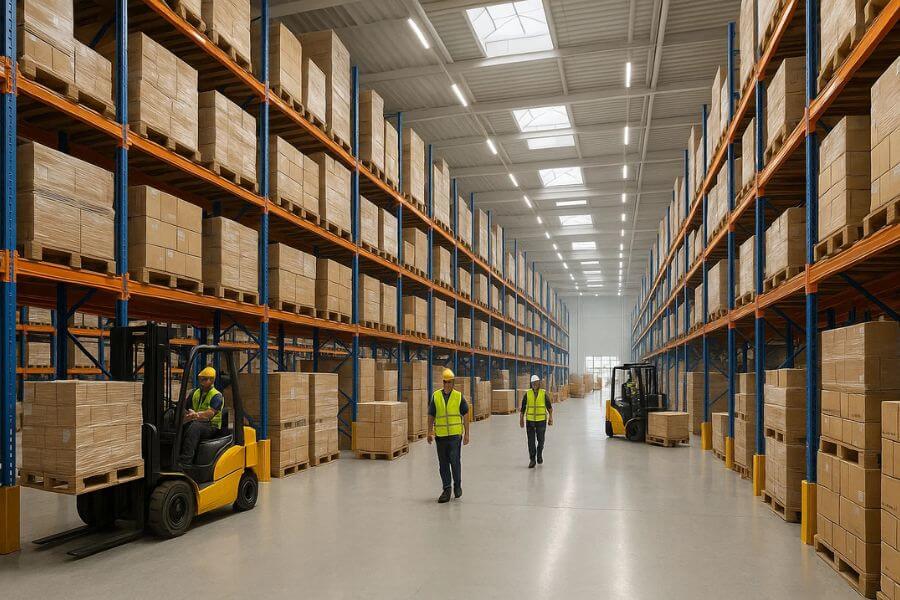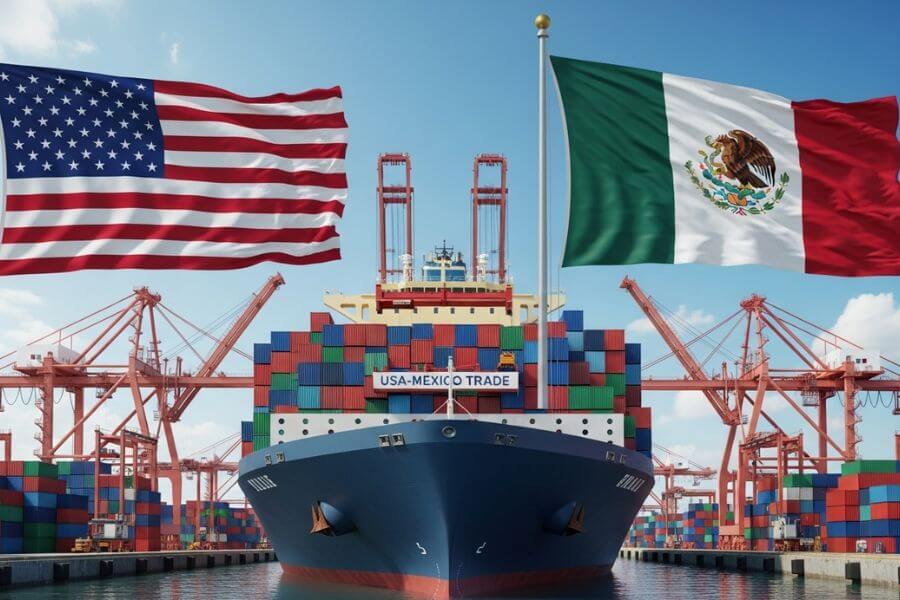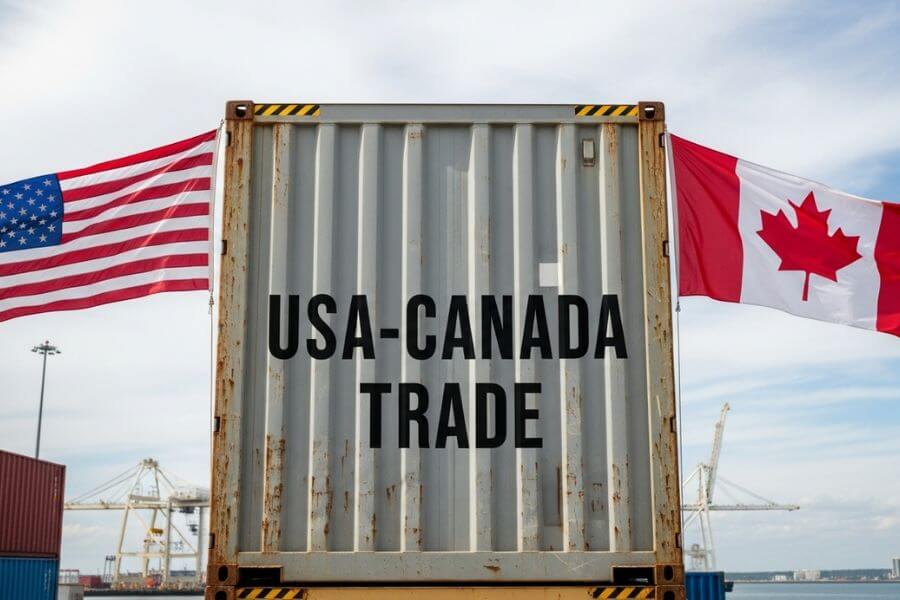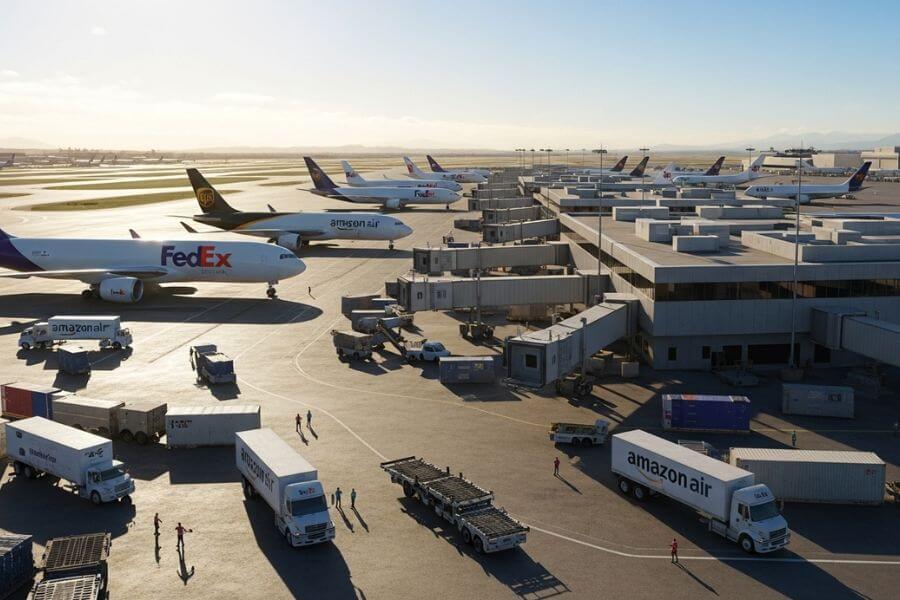The modern supply chain is more complex than ever. Businesses are under pressure to keep costs low, fulfill orders faster, and meet ever-rising customer expectations. One strategic solution that’s gaining momentum is dedicated warehousing.
Unlike shared warehousing—where multiple businesses share space, labor, and resources—dedicated warehousing gives one company complete control over its own facility. This approach allows businesses to customize operations, integrate technology, and scale according to demand.
But dedicated warehousing is not a one-size-fits-all model. It shines in certain industries where control, compliance, and efficiency are non-negotiable. From e-commerce and fashion to aerospace and chemicals, dedicated warehousing provides the backbone these sectors need to thrive.
Let’s explore the 10 industries that benefit the most from dedicated warehousing, why they rely on it, and how it strengthens their logistics strategies.
1. E-commerce and retail
The e-commerce and retail sector is one of the largest beneficiaries of dedicated warehousing. Online shopping has transformed consumer expectations: people want fast shipping, accurate orders, and hassle-free returns. To deliver on this, retailers need a streamlined supply chain—and that’s where dedicated warehousing comes in.
With a warehouse fully devoted to their products, e-commerce businesses enjoy:
- Faster fulfillment: Orders can be picked, packed, and shipped without delays caused by competing warehouse clients.
- Customized systems: Retailers can implement specialized warehouse management systems (WMS) to handle high-volume SKUs, track inventory in real-time, and support omnichannel operations.
- Seasonal flexibility: Peak shopping periods like Black Friday, Cyber Monday, and the holiday season bring massive spikes in orders. Dedicated warehousing gives businesses the control to scale labor and processes without disruption.
- Efficient reverse logistics: Returns are common in e-commerce. Having a dedicated warehouse makes processing and restocking returns much faster.
📌 Example: Amazon and other major e-commerce players use dedicated facilities to reduce delivery windows to just one or two days, giving them a major competitive edge.
2. Automotive
The automotive industry relies on precision logistics. Manufacturing vehicles involves tens of thousands of parts sourced globally. Delays or errors in the supply chain can halt production lines and cost millions of dollars. Dedicated warehousing ensures automotive companies always have the right parts at the right time.
Benefits include:
- Just-in-Time (JIT) supply: Dedicated warehouses positioned near manufacturing plants allow automakers to receive critical components exactly when needed, reducing inventory holding costs.
- Specialized storage: Automotive parts vary widely—from small electronics to bulky engines—requiring tailored storage solutions. Dedicated warehouses can be built with reinforced shelving, heavy-duty equipment, and secure hazardous material zones.
- Reduced downtime: A single missing part can stop an assembly line. Dedicated warehousing ensures rapid access and delivery, minimizing costly downtime.
📌 Example: Many major automakers in the U.S. operate dedicated warehouses within miles of their plants, ensuring efficiency in JIT manufacturing models.
3. Pharmaceuticals and healthcare
For the pharmaceutical and healthcare industry, compliance, safety, and traceability are essential. Improper storage or mishandling of medicines can compromise patient safety and lead to severe legal penalties. Dedicated warehousing offers a controlled environment tailored to these needs.
Advantages include:
- Regulatory compliance: Facilities can be designed to meet strict FDA, GMP, and HIPAA requirements.
- Temperature control: Many vaccines, biologics, and drugs must be stored in temperature-sensitive environments. Dedicated warehouses often include refrigerated or ultra-cold freezers.
- Enhanced security: Pharmaceuticals are high-value and often targeted for theft. Dedicated facilities allow for strict access controls, surveillance, and auditing.
- End-to-end traceability: Dedicated WMS systems enable complete visibility into product movement, ensuring compliance and quality control.
📌 Example: During the COVID-19 pandemic, the distribution of vaccines relied heavily on dedicated cold chain warehouses that could maintain ultra-low temperatures consistently.
4. Food and beverage
Food and beverage companies face unique challenges: short shelf lives, strict food safety regulations, and fluctuating consumer demand. Dedicated warehousing provides the infrastructure to manage all of these efficiently.
Key benefits include:
- Cold chain support: Dedicated facilities can be equipped with multiple temperature zones, from ambient storage to deep freezing.
- Strict hygiene standards: Facilities can be designed to comply with HACCP, FDA, and USDA standards.
- Faster replenishment: Retailers, restaurants, and grocery distributors rely on fast-moving stock. A dedicated warehouse ensures quick restocking and reduced spoilage.
- Brand protection: Proper storage and handling protect brand reputation by ensuring customers always receive fresh, safe products.
📌 Example: Large beverage companies like Coca-Cola often operate dedicated warehouses close to major urban centers to ensure fresh delivery and rapid distribution.
5. Consumer electronics
The consumer electronics sector is known for fragile products, frequent new launches, and high return rates. Dedicated warehousing helps businesses overcome these challenges.
Benefits include:
- Specialized handling: Electronics require careful storage and handling to avoid damage from shocks, dust, or moisture.
- Launch readiness: When new smartphones, gaming consoles, or laptops are released, dedicated warehousing ensures companies can handle sudden spikes in demand.
- Reverse logistics efficiency: Electronics often have high return rates. A dedicated warehouse can streamline refurbishing, testing, and restocking.
- Secure storage: With high-value products, theft prevention is critical. Dedicated facilities allow for advanced security measures.
📌 Example: Apple and Samsung rely on dedicated warehouses to manage product launches and distribution efficiently across global markets.
6. Apparel and fashion
The apparel and fashion industry thrives on speed and agility. With trends changing rapidly and seasons dictating demand, dedicated warehousing plays a crucial role in ensuring the right products reach customers on time.
Advantages include:
- SKU complexity management: Fashion involves thousands of variations in size, color, and style. Dedicated WMS helps track these efficiently.
- Seasonal scaling: Peak shopping seasons (spring/summer collections, holiday sales) require quick scaling of space and labor.
- Brand consistency: Dedicated warehouses allow businesses to manage branded packaging, personalized orders, and value-added services like embroidery or customization.
- Omnichannel fulfillment: Fashion brands often sell through both online platforms and retail outlets. Dedicated warehousing supports both seamlessly.
📌 Example: Fast-fashion companies like Zara rely on dedicated facilities to move products quickly from design to retail shelves, keeping pace with trends.
7. Industrial and heavy equipment
Industrial and construction sectors require storage for large, bulky, and sometimes hazardous equipment. Shared warehousing often doesn’t provide the specialized infrastructure needed.
Dedicated warehousing benefits these industries through:
- Reinforced facilities: Heavy machinery and equipment require warehouses built with strong flooring and heavy-duty racking.
- Proximity to projects: Facilities can be located strategically near major construction or industrial hubs.
- Compliance with safety standards: Industrial products may involve chemicals, oils, or sharp equipment requiring specialized storage conditions.
- Reduced downtime: Quick access to parts and equipment prevents costly project delays.
📌 Example: Construction equipment manufacturers often use dedicated warehouses near ports or project sites to ensure fast availability of materials.
8. Cold chain logistics (frozen & refrigerated goods)
Cold chain industries deal with some of the strictest logistics requirements. From frozen seafood to biotech materials, maintaining the correct temperature is critical.
Dedicated warehousing enables:
- Temperature precision: Facilities maintain strict ranges from -20°C freezers to chilled zones for fresh goods.
- Spoilage reduction: With controlled handling and monitoring, businesses minimize waste.
- Regulatory compliance: Cold chain products must meet health and safety standards, which dedicated warehouses are designed to support.
- Scalability: Seasonal products like ice cream or frozen holiday meals benefit from flexible dedicated cold storage.
📌 Example: Grocery chains like Walmart rely on dedicated cold storage warehouses to maintain freshness across their perishable product lines.
9. Aerospace and defense
The aerospace and defense industry demands the highest levels of precision, compliance, and security. A single part failure can have catastrophic consequences, making dedicated warehousing essential.
Key benefits:
- High-level security: Restricted access, 24/7 surveillance, and strict compliance with defense regulations.
- Customized storage: Aerospace parts range from tiny electronic chips to massive aircraft wings, requiring diverse storage solutions.
- Critical availability: Aircraft maintenance requires immediate access to replacement parts. Dedicated facilities reduce lead times.
- Traceability: Every part must be tracked for safety and compliance. Dedicated WMS provides full visibility.
📌 Example: Airlines and defense contractors often use dedicated warehouses near airports or bases to ensure parts are available at all times.
10. Chemicals and hazardous materials
The storage of chemicals and hazardous materials comes with enormous responsibility. Mishandling can result in accidents, environmental damage, and legal consequences. Dedicated warehousing minimizes these risks.
Benefits include:
- Regulatory compliance: Facilities are designed to meet OSHA, EPA, and local safety standards.
- Safety systems: Fire suppression, spill containment, and ventilation systems are tailored to specific chemicals.
- Risk mitigation: Dedicated storage prevents cross-contamination with non-hazardous goods.
- Emergency preparedness: Facilities can be equipped with safety zones, alarms, and trained staff for emergencies.
📌 Example: Chemical manufacturers often operate dedicated warehouses with highly controlled environments to ensure safe storage and compliance.
Conclusion
Across industries, dedicated warehousing provides one common advantage: control. Whether it’s e-commerce businesses seeking faster delivery, pharmaceutical companies maintaining compliance, or aerospace firms requiring secure storage, dedicated warehousing gives them the flexibility, scalability, and precision to succeed.
As supply chains become more complex, businesses that invest in dedicated warehousing gain a long-term competitive edge. If your industry values efficiency, safety, and reliability, dedicated warehousing could be the strategic advantage you need.











